
Book a Consultation
Thank you!
Your form has been sent successfully.

Adenoid Cystic Carcinoma (ACC) is a rare form of adenocarcinoma that develops in the epithelial cells of glands. It most commonly affects salivary glands that secrete saliva in the oral cavity. ACC may also involve other body parts like skin, lungs, breast tissues, prostate gland, or cervix. It is a slow-growing cancer with the potential for recurrence. In rare cases, ACC can be aggressive and invade nearby lymph nodes and nerve fibers. ACC with nerve invasion has a high chance of relapse rate even after treatment.
According to the origin of cancerous cells, Adenoid cystic carcinoma can be divided into primary and secondary types.
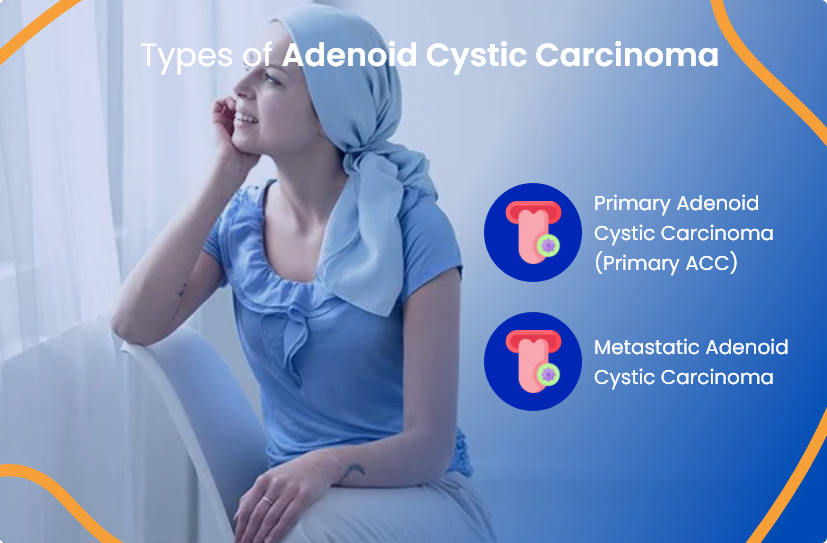
Primary Adenoid Cystic Carcinoma is classified depending on the location and tissues involved. They can be further divided into:
When ACC spreads from the original site to other parts of the body, it is called Metastatic Adenoid Cystic Carcinoma. ACC has a high potential for metastasis. The lung is the most common site where ACC metastasizes.
Adenoid cystic carcinoma is a slow-growing cancer. The early stages of cancer may be painless. Advanced stages may cause pain as it spreads along the nerves. Symptoms of Adenoid Cystic Carcinoma depend on the location and size of the tumor and may include the following :
 Salivary gland (secretes saliva): Painless enlarged mass in mouth/face/neck,
weakness of facial muscles, difficulty in swallowing and opening of the mouth
Salivary gland (secretes saliva): Painless enlarged mass in mouth/face/neck,
weakness of facial muscles, difficulty in swallowing and opening of the mouth
 Lacrimal gland (secretes tears): vision problems, bulging of eyes
Lacrimal gland (secretes tears): vision problems, bulging of eyes
 Larynx (voice box): Speech difficulty, hoarseness, coughing out blood
Larynx (voice box): Speech difficulty, hoarseness, coughing out blood
 Trachea (windpipe): Breathing difficulty
Trachea (windpipe): Breathing difficulty
 Breast: Tender, slow-growing lump around the nipple
Breast: Tender, slow-growing lump around the nipple
 Skin: Isolated or multiple red patches on the skin, hair loss in the affected area
Skin: Isolated or multiple red patches on the skin, hair loss in the affected area
 Esophagus: Regurgitation of food and liquid, weight loss
Esophagus: Regurgitation of food and liquid, weight loss
 Prostate gland: A decreased flow of urine and increased frequency of urination.
Prostate gland: A decreased flow of urine and increased frequency of urination.
Adenoid Cystic Carcinoma treatment options depend upon the size, location, and type of tumor. Age and overall health are also considered before deciding on the best course of treatment for Adenoid Cystic Carcinoma.
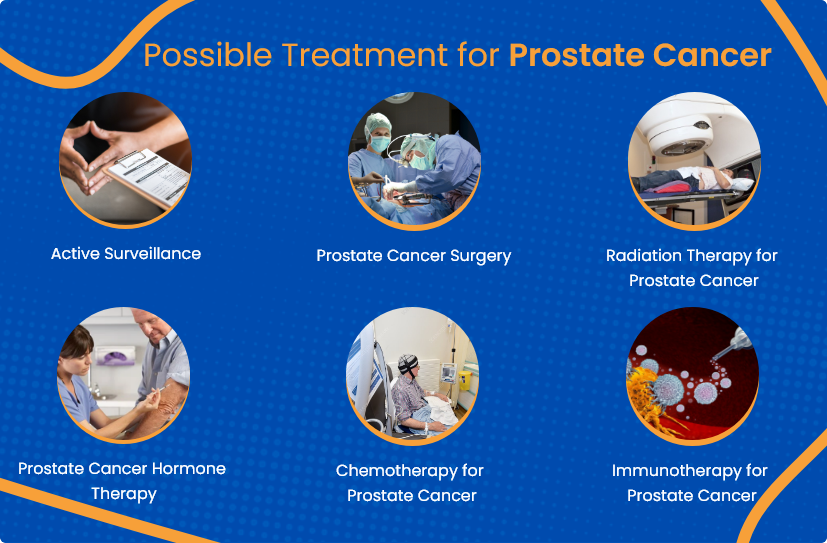
Oncologists surgically remove the entire tumor and the minimum of 2 millimeters of cancer-free tissues surrounding the cancerous area. The extent of surgery depends on the location, stage, and area of the body involved.
Radiation therapy uses high-intensity radiation to destroy cancerous cells. It is mostly used after the surgical removal of the tumor to eliminate any leftover microscopic cancer cells. Intensity-modulated radiation therapy (IMRT) is a specific type of radiotherapy which effectively delivers radiation to cancerous cells and spares healthy cells, thereby reducing the side effects.
ACC is often treated with neutron therapy when the tumor affects difficult-to-operate areas. It is also used in radioresistant tumors or recurrence cases. It is more potent than conventional radiation therapy and causes significant damage to cancer cells. However, it also causes more side effects.
Proton beam therapy uses protons at high energy to destroy cancerous cells. It allows greater control over the radiation and spares the healthy tissues around the tumor.
Chemotherapy uses systemic drugs to destroy cancer cells. The medications are delivered through the bloodstream or orally to treat cancer. According to the American Society of Clinical Oncology, ACC appears to be less responsive to chemotherapy than other cancer types.
Targeted drug therapy explicitly targets specific cell proteins or genes that block the growth and spread of cancer. It causes fewer side effects as it spares healthy cells because of its specific action.
The following tests and procedures may be recommended depending on the symptoms, age, and general health:
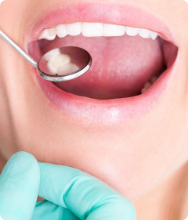
A biopsy is a definitive diagnosis of cancer that includes the removal of a tissue sample for microscopic examination. A biopsy can be performed using a fine needle to remove tissue fluid or cells from the suspicious area (FNAC) or surgical removal of a part or entire tumor.
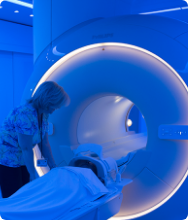
MRI uses strong magnetic waves to take multiple detailed computerized images of the tumor. It helps to determine the size and exact location of cancer and identify the perineural spread of ACC.
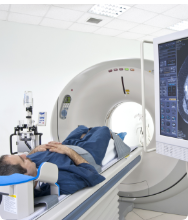
CT scan is a series of X-ray images from different angles that forms a 3-dimensional image. It results in detailed cross-sectional images of tissues. It helps identify abnormalities in tissues and measure the tumor's size.
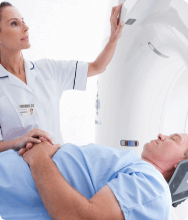
PET is a nuclear-medicine diagnostic procedure that uses a radioactive tracer, i.e., positron, to visualize tissues' metabolism and biochemical functions. PET can identify any abnormality in the metabolic activity of the tracer in ACC before it appears on CT and MRI.
The cancer specialists at ACTC in Florida, offer outstanding patient care by prescribing personalized and evidence-based treatment plans tailored to individual patients' needs. We aim to foster a positive environment that focuses on physical and mental health throughout a cancer patient's journey.
The following are our providers who you can consult at ACTC:

Hematology/Oncology

Hematology/Oncology

Radiation Oncology

If you or a loved one has been diagnosed with ACC cancer, a detailed discussion with your primary physician will help you understand your condition better. Your primary care doctor can then refer to an advanced specialty center such as ACTC in Florida.
As one of Florida's best cancer centers, we understand how a cancer diagnosis and therapy impact a person's physical and emotional well-being. Therefore, we work hard to make patients and their families feel secure. We understand how imperative it is for you and your loved one to make informed choices and play an active part in your medical care. We at ACTC strive to support you at every step of diagnosis, staging, treatment, and long-term follow-up in one convenient location. Our cancer specialists are backed up by qualified clinical staff with over two decades of experience and a reputation for providing personalized cancer treatment.
Schedule a consultation by calling
 352-345-4565
352-345-4565
According to the National Organization for Rare Disorders, ACC commonly affects people between 40 and 60. Women are slightly more affected than men because ACC develops more in female anatomical sites like the breast and cervix.
There are no known causes of ACC. According to the Adenoid cystic carcinoma research foundation, a genetic alteration in MYB and MYBL1 genes lead to an elevated protein level that increases the growth of ACC tumor.
Due to perineural invasion, the recurrence rate is high for ACC. Extensive treatment is required to treat aggressive relapse cases of ACC.
Schedule a consultation by calling
 352-345-4565
352-345-4565